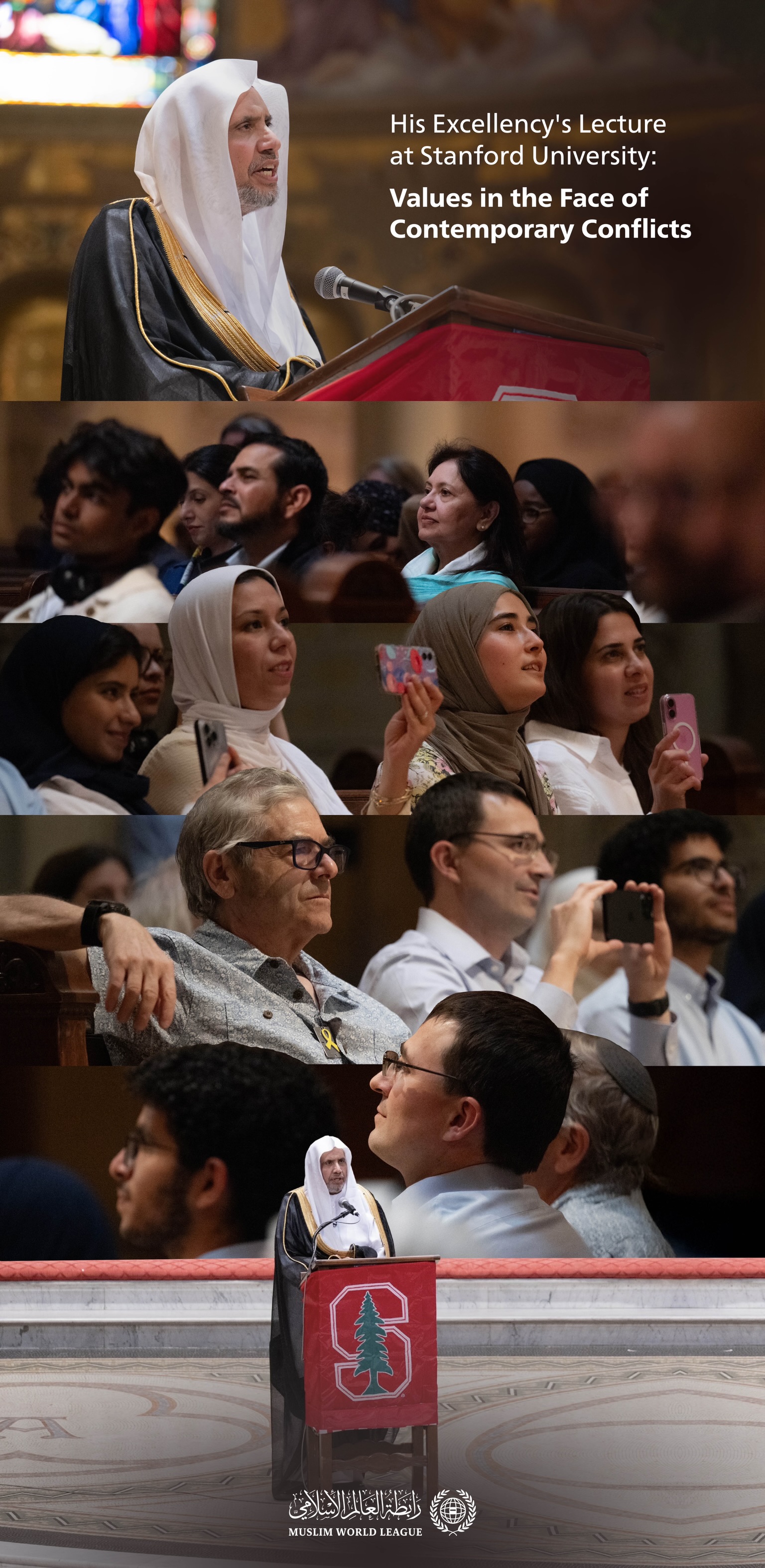tanford University in the United States hosted H.E. Sheikh Dr. Mohammed Alissa
Infographicstanford University in the United States hosted H.E. Sheikh Dr. Mohammed Alissa
, Secretary-General of the Muslim World League (MWL) and Chairman of the Organization of Muslim Scholars, who delivered a distinguished lecture titled "Values in the Face of Contemporary Conflicts."
In his address, H.E. focused on the complexities of ideological conflicts—both religious and intellectual—examining the dangers they pose and proposing practical solutions. He emphasized the fundamental distinction between natural and constructive diversity of thought, which is an inherent aspect of human existence, and the harmful ideological confrontations that fragment societies and undermine national unity. The importance of mutual understanding, peaceful coexistence, and constructive cooperation was underscored as essential responses to such challenges.
The lecture highlighted a range of prominent theories that influence ideological landscapes, particularly those that advocate the transformation of ideas into rigid and exclusionary dogmas. H.E. warned of parallels in other domains, such as economic freedom, which can become entrenched beliefs that overshadow values of justice and solidarity. Nonetheless, he affirmed the legitimate right of states and institutions to pursue their national interests within ethical and legal boundaries.
Furthermore, the lecture addressed the principles of international law and international humanitarian law, offering a concise overview and evaluating their application in the context of current global events.
Additionally, the lecture reviewed several global initiatives by the Muslim World League aimed at fostering peace and cohesion among societies and nations. He elaborated on some Islamic values, offering insights, proposed solutions, and practical models for implementation. He clarified key Islamic concepts, stressing the importance of understanding their legislative objectives and their ongoing relevance. A clear distinction was made between authentic Islamic teachings and the actions of individuals or groups that may claim to represent them.
Special attention was given to the Charter Of Makkah, including its inclusive Islamic consensus, the motivations behind its development, and a brief summary of its core principles.
The lecture concluded with an engaging discussion session, where attendees explored key themes through questions, surveys, and dialogue.
A number of university academics, students, and distinguished invitees attended the event, underscoring its significance and recommending that the lecture’s themes be expanded into a book to be published by the university.
A luncheon was subsequently held in honor of H.E., with the presence of deans, faculty members, and distinguished attendees.


